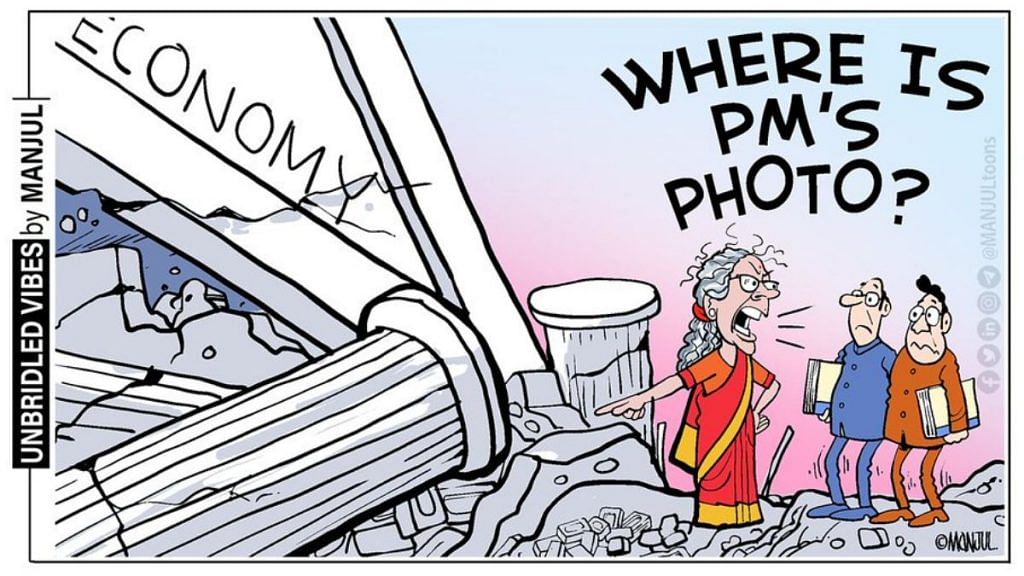The selected cartoons appeared first in other publications, either in print or online, or on social media, and are credited appropriately.
In today’s featured cartoon, Manjul takes a dig at Finance Minister Nirmala Sitharaman for pulling up a district collector when she did not find PM Narendra Modi’s picture at a fair price shop in Telangana. Sitharaman remains bullish on a double-digit growth this financial year even as India’s economy is still recovering from the economic slowdown of the pandemic.
Alok Nirantar brings to light Congress leader Rahul Gandhi’s Bharat Jodo Yatra that kicks off from Tamil Nadu’s Kanyakumari on 7 September. The illustration shows a Congress leader suggesting his party president Sonia Gandhi that Rahul baiters will not have the opportunity this time to criticise him unlike in the past for his foreign trips.
Ponnappa alludes to the water-logging on the Outer Ring Road in Bengaluru after heavy rainfall, making it difficult to travel by road. Motorists are having a tough time as there is no space for them to turn without getting stuck on the water-logged roads.
Sajith Kumar takes a dig at the reports of India overtaking the UK as the fifth largest economy even as the people from across the social spectrum are grappling with unemployment, high prices of food staples and other inflation-related issues.
R. Prasad draws on the plea filed by BJP leader Subramanian Swamy to the Supreme
Court in which he accused the Tamil Nadu government of arbitrarily taking the control of nearly 40,000 temples and other Hindu religious institutions. Unlike the renowned shrines, many of the trusts running the lesser known temples are dependent on government for managing the affairs of the place of worship.
